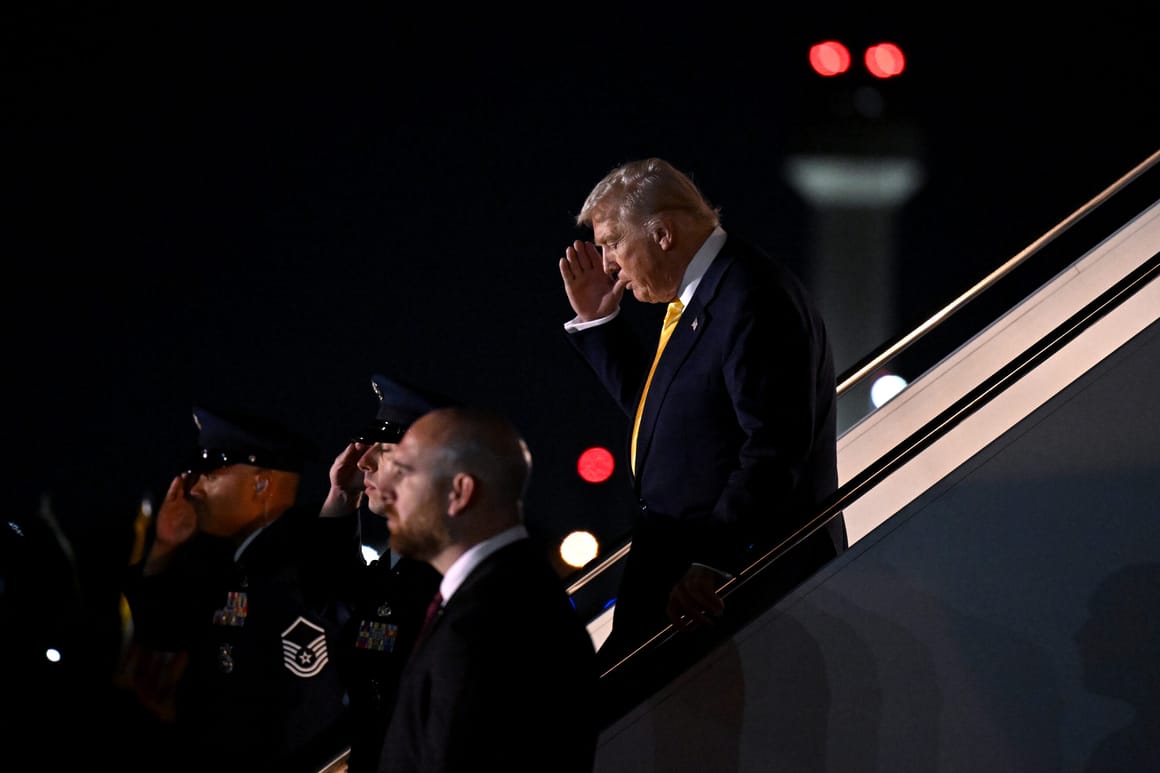Politics
Companies Struggle with Trump’s Complex Tariff System

Businesses across the United States are grappling with the complexities of President Donald Trump‘s new tariff regime, which has created significant challenges for companies large and small. The intricate system has led to increased costs that, for some, negate the benefits achieved from the corporate tax cuts enacted earlier this year.
Over the past year, Trump has overhauled the U.S. tariff code, replacing a decades-old uniform tariff system with a more complicated structure. This new arrangement imposes varying tariff rates depending on the country of origin for imported goods. For instance, an industrial product that previously faced a consistent 5 percent tariff could now incur rates as high as 50 percent if sourced from countries such as India, Brazil, or China.
“The level of executive time that’s been put in this has been enormous,” said Gary Shapiro, CEO and vice chair of the Consumer Technology Association. The association represents approximately 1,300 companies, including major brands like Amazon and Walmart. Shapiro noted that instead of focusing on innovation, many CEOs find themselves preoccupied with navigating the complexities of these tariffs.
The U.S. Department of Justice has added to the pressure by targeting customs fraud enforcement, prompting companies to increase staffing and allocate significant resources to remain compliant. This situation has resulted in a substantial financial burden, with businesses facing tens of billions of dollars in higher tariffs each month.
A recent survey by KPMG revealed that 89 percent of CEOs anticipate tariffs will have a significant impact on their operations over the next three years. Among these, 86 percent expect to respond by raising prices for their goods and services.
Many companies are reporting that executives are now dedicating between 30 to 60 percent of their time to tariff-related discussions. “There’s a real dearth of trade professionals,” stated Maytee Pereira, managing director for customs and international trade at PriceWaterhouseCoopers. The demand for skilled personnel has surged, as businesses struggle to manage the complexities of tariff compliance.
The complications extend beyond staffing issues. Companies are increasingly reluctant to invest in research and development or expand their operations due to the uncertainty surrounding tariff policies. An industry source, who requested anonymity, highlighted that many businesses feel unable to commit funds to new projects or locations.
Despite the difficulties, the administration maintains that the tariffs are essential for boosting domestic manufacturing and supporting its overall economic agenda. Treasury Secretary Scott Bessent recently expressed optimism about future investments stemming from these policies, suggesting that 2026 could be a defining year for economic growth.
Yet, the reality for many businesses is that the benefits of tax cuts are being overshadowed by the burdens imposed by the tariff system. An unnamed industry official described the situation as “incredibly complex,” noting that the landscape is continually evolving.
The Milken Institute has conducted research indicating that the challenges faced by businesses are significant. One report suggested that the difficulties in decision-making due to tariff uncertainties are comparable to the hurdles experienced during the early stages of the COVID-19 pandemic.
Trump’s tariffs, implemented under a 1977 emergency powers act, apply varying rates to around 100 trading partners. While certain countries like the European Union and Japan received exemptions, the vast majority are subject to higher rates, creating a convoluted compliance environment.
Small business owners, in particular, have expressed feeling overwhelmed by the myriad of tariff rules and regulations. Cassie Abel, founder and CEO of Wild Rye, emphasized the detrimental impact on innovation and growth. “We are no longer investing into product innovation, we’re not investing into new hires, we’re not investing into growth,” she remarked, highlighting the shift in focus to merely surviving the regulatory landscape.
Additionally, small businesses have taken action against the administration’s tariff policies, joining a Supreme Court case that challenges the legality of the tariffs imposed under the International Emergency Economic Powers Act. Companies like Crutchfield Corp. have voiced concerns about the ability to plan for the future given the rapidly changing tariff landscape.
The ongoing uncertainty surrounding trade regulations continues to create challenges for businesses trying to navigate the complexities of the new tariff system. As companies await further clarity on compliance requirements, the overall impact on investments and growth remains a pressing concern.
-

 Top Stories2 months ago
Top Stories2 months agoTributes Surge for 9-Year-Old Leon Briody After Cancer Battle
-

 Entertainment4 months ago
Entertainment4 months agoAimee Osbourne Joins Family for Emotional Tribute to Ozzy
-

 Politics4 months ago
Politics4 months agoDanny Healy-Rae Considers Complaint After Altercation with Garda
-

 Top Stories3 months ago
Top Stories3 months agoIreland Enjoys Summer Heat as Hurricane Erin Approaches Atlantic
-

 World4 months ago
World4 months agoHawaii Commemorates 80 Years Since Hiroshima Bombing with Ceremony
-

 Top Stories2 months ago
Top Stories2 months agoNewcastle West Woman Patricia Foley Found Safe After Urgent Search
-

 Top Stories4 months ago
Top Stories4 months agoFianna Fáil TDs Urgently Consider Maire Geoghegan-Quinn for Presidency
-

 World4 months ago
World4 months agoCouple Convicted of Murdering Two-Year-Old Grandson in Wales
-

 World4 months ago
World4 months agoGaza Aid Distribution Tragedy: 20 Killed Amid Ongoing Violence
-

 World4 months ago
World4 months agoAristocrat Constance Marten and Partner Convicted of Infant Murder
-

 Top Stories4 months ago
Top Stories4 months agoClimbing Errigal: A Must-Do Summer Adventure in Donegal
-

 Top Stories4 months ago
Top Stories4 months agoHike Donegal’s Errigal Mountain NOW for Unforgettable Summer Views









